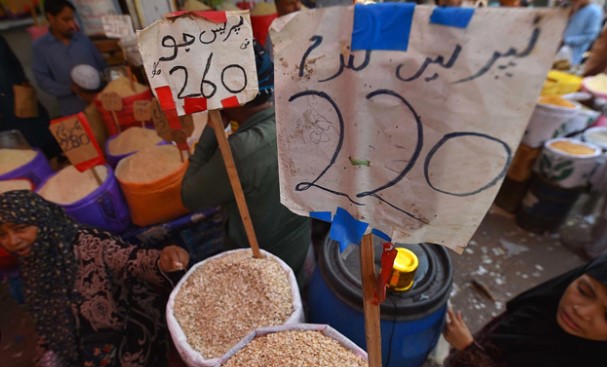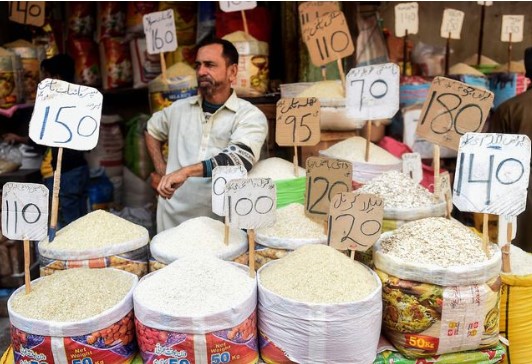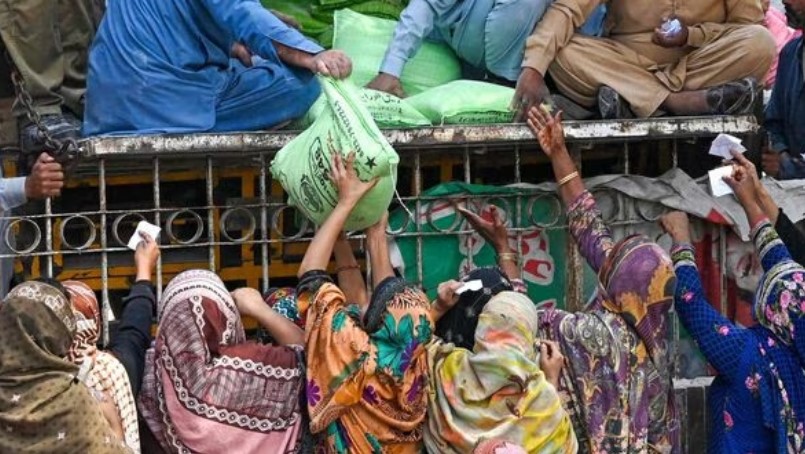
Pakistan Failing Economic Model Draws Criticism from World Bank1
Pakistan’s Economic Landscape: World Bank Calls for Urgent Reforms
World Bank Country Director Najy Benhassine Highlights Failures in Pakistan’s Economic Model
In a recent Policy Vision article featured in the latest UNDP publication, World Bank Country Director Najy Benhassine criticized Pakistan’s current economic model. He emphasized the urgent need for policy changes to address issues that have hindered development and disproportionately benefited a select few.
Benhassine pointed out that Pakistan’s economic model has fallen behind its peers, leading to a reversal of significant progress in poverty reduction. The benefits of economic growth, he noted, have primarily accrued to a narrow elite, contributing to a consensus that demands action to rectify these imbalances.
In the Development Advocate Pakistan, UNDP’s quarterly development magazine, Benhassine underscored Pakistan’s vulnerability to climate change, with evident impacts from climate shocks and natural disasters. He stressed the necessity of addressing policy failures and distortions in the crucial agri-food and energy sectors.

For agriculture, Benhassine called for reforms to eliminate subsidies and price restrictions that trap smallholder farmers in a low-value farming system. He advocated for changes that discourage resource-intensive and environmentally damaging production practices.
In the energy sector, the World Bank official recommended consolidating progress towards financial sustainability and enhancing the efficiency of distribution companies. He suggested increased private participation and the reduction of high electricity generation costs through a greater focus on renewable energy.
While acknowledging the well-established need for policy shifts, Benhassine highlighted the potential challenges and opposition to reform efforts. He posed a crucial question about whether those with power and influence would seize the opportunity presented by the current crisis to implement necessary changes. Benhassine concluded by urging Pakistan to unite in the pursuit of a brighter, more prosperous, and sustainable future.
He emphasized the urgent need for significant improvements in fiscal management, citing unsustainable levels of debt servicing costs and domestic revenue mobilization. These challenges, he noted, leave insufficient resources for investments in human development, infrastructure, tackling economic issues, and adapting to a changing climate.

To address these issues, reforms are essential to consolidate and enhance the quality of government spending. This includes the reduction of regressive and distortionary subsidies and minimizing losses from inefficient state-owned enterprises, particularly in the energy sector.
The World Bank official proposed raising more revenue from the affluent segment of the population by implementing progressive taxation on property and activities with environmental impact. Additionally, he recommended a reduction in tax exemptions.
In order to improve living standards, he stressed the importance of fostering stronger economic growth and creating a more dynamic and open economy. This entails reducing protection for inward-oriented sectors and addressing distortions in taxation that favor non-tradable goods, with the aim of promoting exports.
Furthermore, the World Bank official underscored the critical importance of fostering a more dynamic and open economy to enhance living standards. He highlighted the need to reduce protection for inward-oriented sectors and address distortions in taxation that favor non-tradable goods. By doing so, the goal is to stimulate and encourage the export sector, contributing to economic growth and competitiveness on the global stage.
In his assessment, he pointed out that the current fiscal challenges demand not only a reduction in regressive subsidies but also a comprehensive effort to curtail losses incurred by inefficient state-owned enterprises, particularly those within the energy sector. This, he believes, will contribute to a more efficient allocation of resources and a sustainable economic trajectory.
Moreover, the World Bank official advocated for a shift in the tax burden towards the better-off segments of society. He proposed an increase in progressive taxation on property and activities that have detrimental effects on the environment. Simultaneously, he called for a review and reduction of existing tax exemptions, aiming to create a fairer and more equitable tax system.
In the broader context, he emphasized that achieving improved living standards requires not only sound fiscal policies but also robust economic growth. A more dynamic economy, according to the official, will not only generate increased revenue but also create opportunities for employment and entrepreneurship, thereby fostering sustainable development.
As the call for reforms resonates, the World Bank official urged a comprehensive and collaborative approach. He highlighted the interconnectedness of fiscal management, economic openness, and sustainable practices as key pillars for steering the nation towards a brighter and more prosperous future.
For the latest updates-click here.

